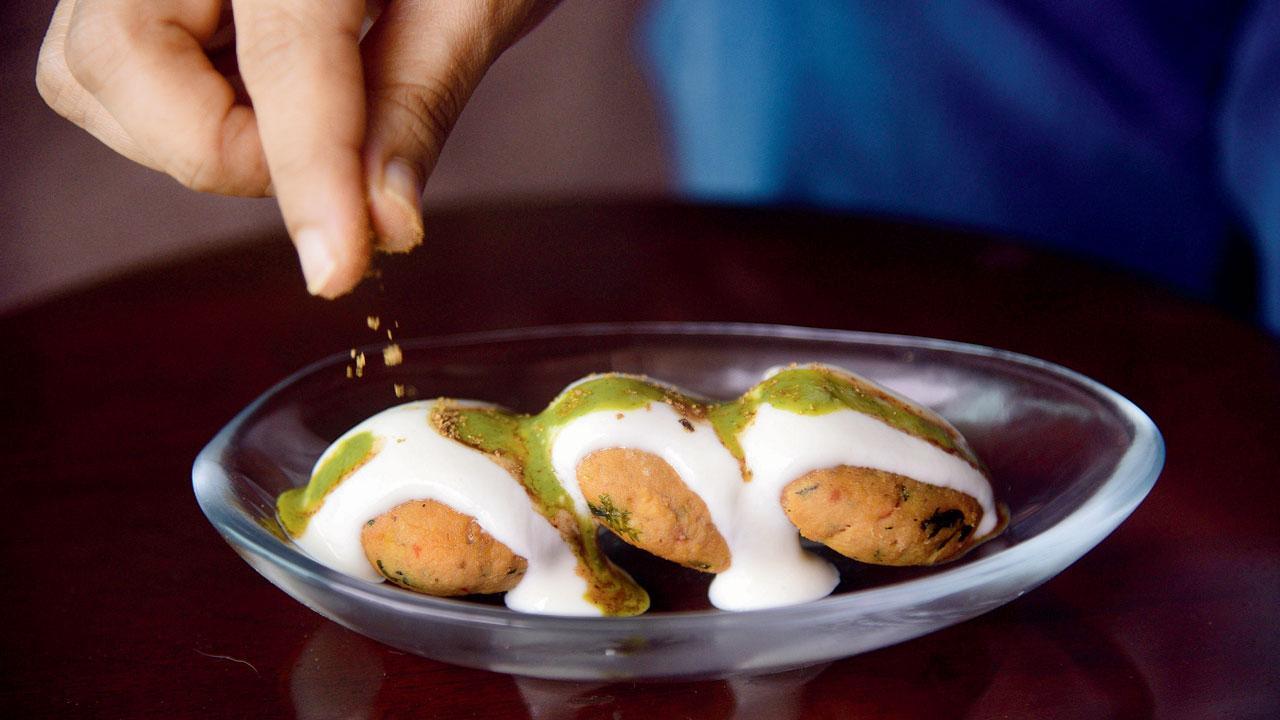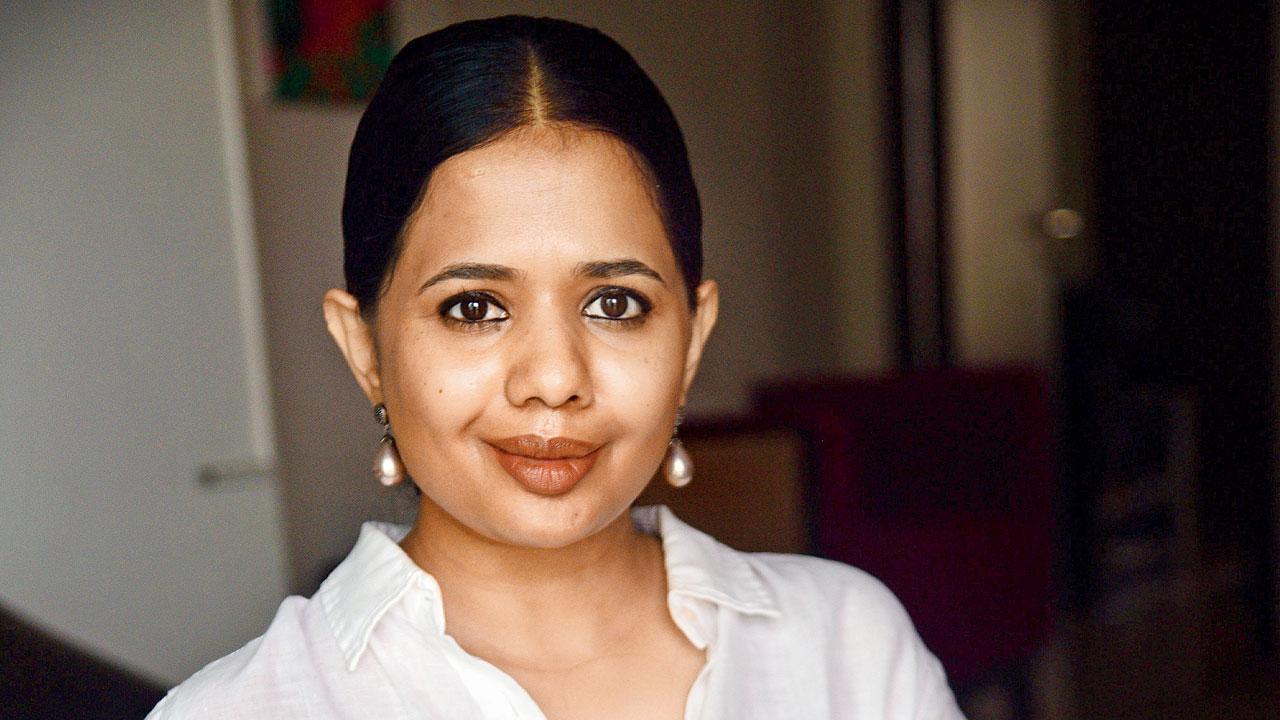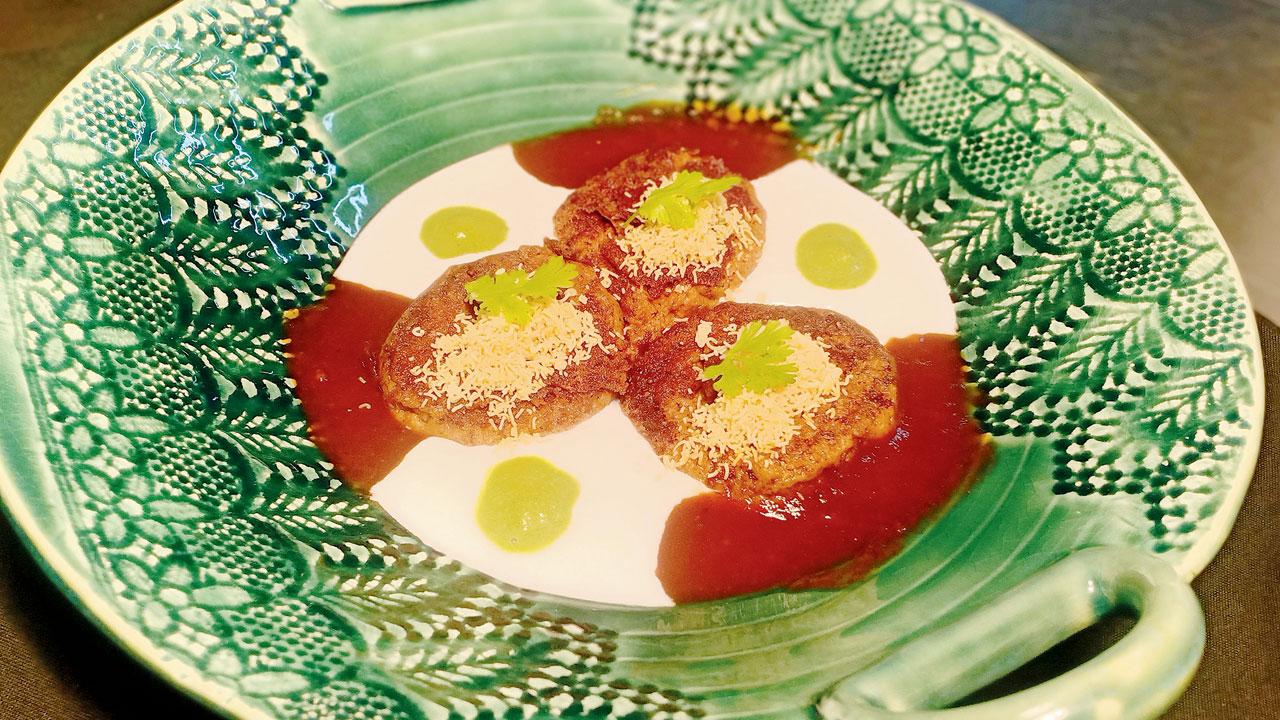The rains are the ideal time to engage in an indulgent conversation around the mutton kebab that is a non-vegetarian adaptation of the classic dahi barra

Garnishing the mutton dahi vada. Pics/Pradeep Dhivar
We love a food detour, and chancing upon lesser-known but relevant dishes gives our appetite much to look forward to. Anuradha Medhora has set up Charoli Foods, a legacy cuisine platform in Bandra in 2015, with the intent to revive and document the cuisine patronised by the royals of Malwa (Madhya Pradesh). During one of our chats, she shared about the interestingly titled mutton dahi vada whose roots trace back to Sailana district of Malwa. “Maharaja Digvijay Singh’s book mentions a dahi vada that his father Raja Singh Dilipji created. Very few royals are known to cook themselves, and Dilip Singh is a rare expectation, which is why his recipes are preserved and documented,” she tells us, as she reveals the fascinating back story. “The king stumbled upon his passion for cooking when he was lost in the jungle, and had no khansama in tow to cook for him. For the first time, he attempted the junglee maas,” Medhora explains.

Anuradha Medhora
She adds how dahi vada is very popular in Indore; “No family dinner party is complete without it. A savoury sweet dish, it has all the hazaar flavours Indians love,” elaborating that her household even puts anardana for its fruitiness. “Being a Rajput, Singh must have wondered why the popular dish can’t be made with meat. If halwa can be made of meat, this attempt would work too. He tried and succeeded,” says Medhora, who offers the dish on her menu only as a pre-order.
The mutton kebab is cooked till all the juices dry out; it is flattened and shallow fried. After this, it is dunked in buttermilk and then squeezed to remove all the water. Next, the kebab is broken and semi-thick yogurt is poured generously over it. Topped with salt, sugar, imli and chutneys along with seasoning of jeera, the dish is served within two hours.
Coincidentally, a few months ago, in Hyderabad, we chanced upon chef Mrigank Singh’s version of mutton dahi vada at his restaurant The Pink Elephant. He draws his inspiration from Lucknow’s kebab and chaat culture. “That city’s shammi and its chaats are irresistible. In many places, they combine the two, and during my culinary research, I chanced upon a tasting. The shammi is crispier and dunked in buttermilk. Those who haven’t tasted the dish raise their eyebrows but when they try it, they realise it is the best of both worlds — kebabs and chaat,” he signs off.
Log on to: @charoli_foods
Mutton dahi vada
For eight to 10 pcs mutton shammi kebab
Chef Mrigank Singh
INGREDIENTS
>> 500 gm mutton kheema
>> 100 gm chana daal
>> 1 tsp garam masala
>> 10 gm onion chopped
>> 10 gm green chilli, chopped
>> 1 cup coriander, chopped
>> 4 tbsp ghee
>> 1 tbsp black pepper
>> 2 black cardamom pods
>> 2 bay leaves
METHOD
Soak chana dal for two hours.In a pressure cooker add half of the ghee, add whole spices, kheema, chana dal. Mix all well with wooden spatula. Add little water that helps in cooking and gets absorbed during cooking. Cook for three whistles or as necessary. If the mixture is wet, cook a little more to evaporate the extra water and then spread it on a plate to dry and cool it down. Take out the bay leaf but leave the pepper and cardamom before passing it through the kheema machine or grind it on a flat mortar pestle, or do it in a food processor to avoid using the mixer-grinder as the kebab needs to be slightly coarse. Mix chopped onion, coriander, green chilli, garam masala and ghee to the mixture and make patty.
For mutton dahi vada

Mutton ke dahi kebab
INGREDIENTS
>> 100 gm green chutney
>> 50 gm tamarind chutney
>> 300 ml buttermilk
>> 3 tbsp ghee
>> 250 gm salted yogurt
>> 50 gm nylon sev
>> 1 cup coriander
 Chef Mrigank Singh
Chef Mrigank Singh
METHOD
In a heavy skillet add ghee, sear kebabs on it to make them crunchy on both sides. In a small bowl, take salted buttermilk. Dip the kebab in it and take it out quickly. Like just a dip and out. Kebabs have to be hot off the skillet then only they will get soaked well. Arrange them on a serving dish. Layer them first with salted yoghurt, then green chutney and in the last the tamarind chutney. It is optional to sprinkle jeera and chilli powder. Sometimes, it interferes with the taste of the kebab. You can garnish with nylon sev and chopped coriander.
Recipe courtesy: Chef Mrigank Singh
 Subscribe today by clicking the link and stay updated with the latest news!" Click here!
Subscribe today by clicking the link and stay updated with the latest news!" Click here!








